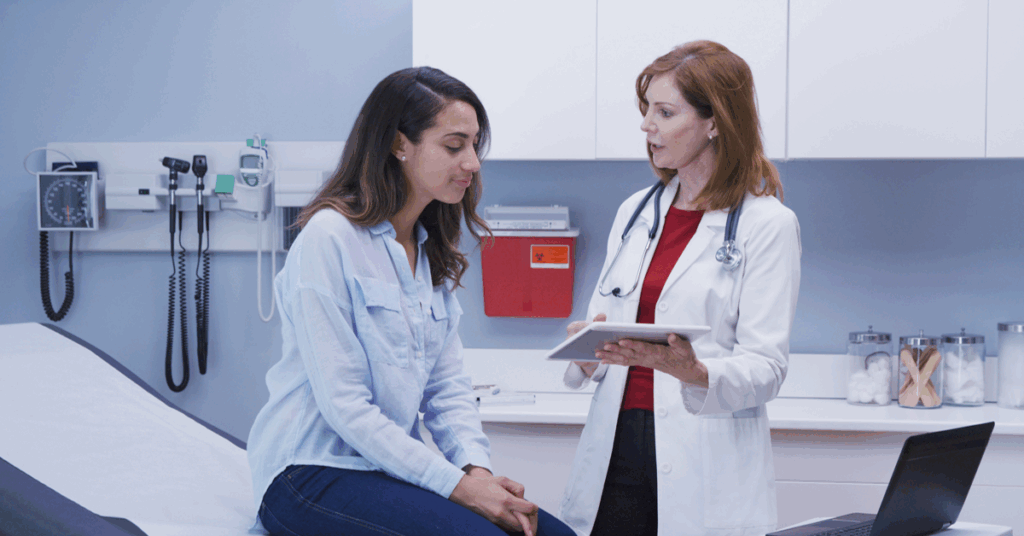
People across the United States seek lasting solutions for weight challenges, and many have already tried surgery. Gastric Revision Explained helps people grasp what happens when a previous weight loss procedure needs adjustment. Sometimes, the first surgery works well at first but slows down over time. Other times, the body simply adapts. Accordingly, some individuals decide to revisit their earlier procedure. Doctors do not always jump straight to major steps. They usually start with tests, diet changes, or guidance. However, if progress remains slow, a second procedure may be recommended. While it may sound overwhelming, the goal stays the same: helping the body respond better. Generally, people want renewed energy, better control over hunger, and a path back to balance. Although every person’s body reacts differently, a careful plan helps create safer outcomes. The key is realistic expectations, patience, and consistent follow-up.
Adjusting the Body’s Response
After the first surgery, the stomach and digestive system sometimes stretch. This change can reduce the effects of the earlier procedure. Because of that shift, the body might start absorbing more calories than before. People may regain weight even while eating carefully. In brief, this change does not mean failure. It simply means the body has learned how to work around the earlier limits. Gastric revision focuses on adjusting the system so it remembers those limits again. Patients meet with professionals who review diet habits, daily stress, and medical history. These conversations guide the choice of technique. Some revisions tighten previous work, while others reshape or reroute certain areas. Basically, the goal is renewed cooperation between the stomach and the brain. When the system responds again, people often feel fuller faster. Likewise, their energy improves as their body works more efficiently.
Why People Consider Gastric Revision Explained
Motivation varies from person to person. Some feel frustrated because they followed every rule yet saw little progress. Others feel tired of constant hunger. Meanwhile, certain individuals notice their health numbers climbing again, such as rising blood pressure or sugar. These signals can create urgency. They remind people that weight loss is not only about appearance. It is closely tied to sleep quality, mobility, and long-term independence. Therefore, revisiting a previous procedure becomes a logical choice. On one hand, some individuals hope to lose additional pounds. On the other hand, many simply want stability. They want to stop gaining and maintain a healthier range. Family support plays a role, but self-drive is crucial. Making this decision requires courage, honesty, and planning. Professionals usually suggest lifestyle counseling before proceeding. This helps ensure that the change is both physical and emotional.
Measuring Results Over Time
Success after revision takes patience. The body needs time to heal, respond, and adjust again. People may experience a burst of energy at first, but long-term progress still depends on routine. Regular meals, thoughtful food choices, and moderate activity remain part of daily life. Specifically, balanced eating helps the body use fuel more wisely. Many notice improvements beyond weight change. Sleep becomes deeper. Joints hurt less. Movement becomes easier. Consequently, small tasks like walking stairs or tying shoes feel different. These changes may seem minor, yet they signal major shifts inside the body. Progress often appears in waves. Some months show visible weight change. Others bring stability, which is equally valuable. Health professionals often remind people that steady maintenance counts as success. It proves the body is staying on track. Support groups, either online or local, offer comfort when motivation drops.
Staying Mentally Prepared
Any revision requires mental strength as much as physical recovery. People sometimes expect instant change. However, lasting results come slowly. Setting small goals keeps motivation solid. In fact, celebrating minor wins builds momentum. Talking with peers also helps, especially those who took a similar path. Hearing others share struggles and solutions normalizes the journey. Stress management plays a large role. Because anxiety can fuel overeating or restlessness, healthy coping tools matter. These may include journaling, walking, or creative hobbies. Counselors often encourage positive routines. They allow individuals to stay busy without relying on food for comfort. Unless people prepare mentally, even the best procedure may feel disappointing. Confidence builds over time through daily choices. With consistent habits, the revised system becomes a reliable partner once more.
Support After Gastric Revision Explained
The journey does not end after surgery. Follow-up visits track progress and address questions. Professionals guide people through changes in appetite, digestion, and energy. Meal plans adjust as the body learns new cues. Family members help by respecting new eating habits. Similarly, friends can offer encouragement without judgment. It helps when loved ones understand that revision is not about vanity. It is about health, freedom, and long-term strength. Exercise plays a role after healing. Light activities such as walking or cycling increase stamina. Over time, stronger muscles protect joints and improve posture. This balance leads to confidence in everyday tasks. Support groups serve as lifelines during tough weeks. They remind people they are not alone. Everyone faces challenges, yet every step forward counts.
Common Myths and Honest Realities
Some believe revision means the first surgery failed. That belief is false. Bodies naturally evolve. What worked five years ago may not work now. Gastric revision offers another chance, not a punishment. Others assume it is an easy shortcut. That belief is also untrue. Revision requires discipline, appointments, and healing time. It is a commitment. People must still monitor habits. They cannot simply rely on the procedure alone. Although the process can be intense, it is often worthwhile. Many report better control over cravings. Their bodies respond again as intended. The path may not be perfect, yet progress is possible with effort and patience. Accepting both good and bad days keeps expectations fair.
Future Outlook for Gastric Revision Explained
Advances make these procedures safer and more precise. Technology helps doctors understand each body’s unique structure. This allows for personalized plans. People no longer face a one-size-fits-all approach. They receive maps tailored to their lifestyle, health background, and goals. Therefore, chances for success continue growing. With steady research and innovation, recovery becomes smoother. Pain management improves. Healing times shorten. Follow-up tools, such as digital tracking or virtual visits, make support more accessible. Looking ahead, more people will likely choose revision as a second chance rather than a last resort. Hope grows as new stories emerge. Lasting success comes from partnership between the body, the doctor, and daily choices. With care and persistence, living well becomes reality again.
Call Us:
To all residents of Tampa, Florida: We’re excited to announce the opening of our new clinic specializing in weight loss. In addition, our clinic offers laser surgery procedures, aesthetic treatments, and more. For information or to schedule an appointment, visit us at IBI Clinic, 5931 Webb Rd, Tampa, FL 33615, or call us today at +1 (813) 499-0044.
Do you have questions or want to learn more about our treatments? At IBI Laser Therapy, we’re here to help. Our team of experienced doctors is ready to provide the guidance and care you need. Contact us today and take the next step toward better health and wellness. Click here to schedule your appointment or request more information.
Alpharetta, 3960 Old Milton Pkwy, Suite 200, Alpharetta, Georgia 30005
Phone: 706-680-6920
Loganville, 367 Athens Hwy, Suite 100C, Loganville, Georgia 30052
Phone: 678-466-6760, Fax: 678-802-7094
Atlanta, 2678 Buford Hwy Atlanta, Georgia 30324
In Florida: Hudson, 14012 US-19, Hudson, FL 34667, Phone: 727-868-4490
And in Tampa, 5931 Webb Rd, Tampa, FL 33615, Phone: 813-499-0044
